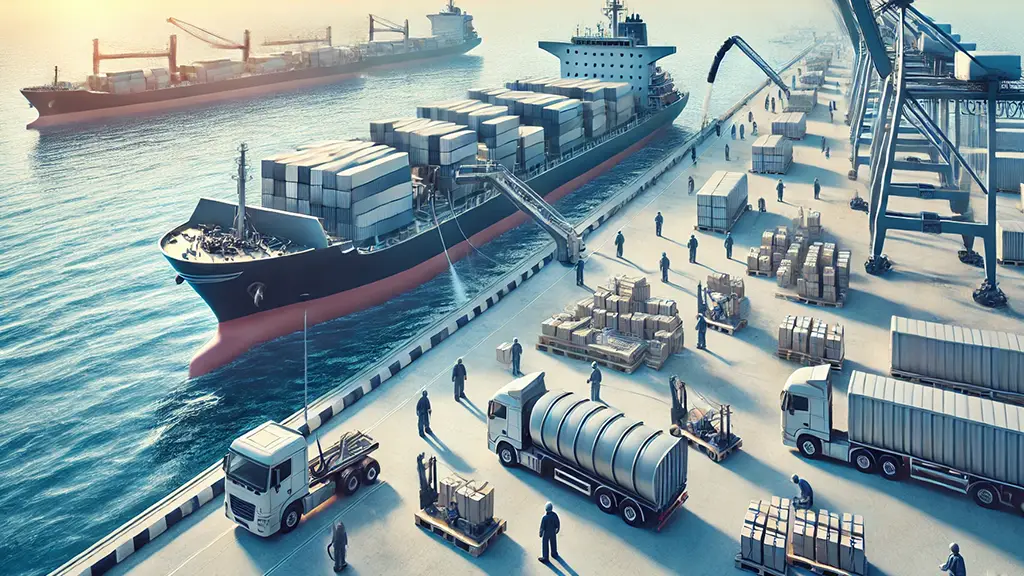Introduction
In the intricate world of maritime operations, the success of any voyage hinges on the availability and reliability of essential ship supply services. From the smallest cargo ships to the largest ocean liners, every vessel requires a range of supplies and services to ensure smooth and efficient operations. This comprehensive guide delves into the critical aspects of ship supply services, detailing the essential provisions, logistics, and maintenance supplies that play a pivotal role in seamless maritime operations.
The Importance of Ship Supply Services
Ship supply services are the backbone of maritime operations. They encompass a wide array of provisions and services that are vital for the functioning and maintenance of ships. These services ensure that vessels are well-equipped, crews are adequately provided for, and any logistical challenges are addressed promptly. Without reliable ship supply services, maritime operations could face significant disruptions, leading to delays, increased costs, and safety risks.
Essential Provisions for Maritime Operations
Food and Beverages
Provisioning a ship with food and beverages is a fundamental aspect of ship supply services. This includes sourcing and delivering fresh, frozen, and dry foods, as well as beverages to cater to the dietary needs of the crew.
Medical Supplies
Ensuring the health and safety of the crew is paramount. Ship supply services provide essential medical supplies, including first aid kits, medicines, and emergency medical equipment, to handle any health issues that may arise during the voyage.
Personal Protective Equipment (PPE)
Safety gear such as helmets, gloves, life vests, and fire-resistant clothing are crucial for protecting the crew from hazards at sea. PPE must meet stringent safety standards and be readily available on board.
Logistical Support in Maritime Operations
Bunkering Services
Supplying fuel for the ship’s engines and auxiliary power systems is critical. Bunkering services involve the provision of different types of fuel, such as marine diesel and heavy fuel oil, ensuring that vessels have the necessary energy to reach their destinations.
Spare Parts and Technical Supplies
Ships require various spare parts and technical supplies for routine maintenance and emergency repairs. This includes engine parts, navigation equipment, and communication devices.
Waste Management Services
Proper waste management is essential for maintaining environmental compliance and operational efficiency. Services include the collection, treatment, and disposal of waste materials generated on board.
Maintenance Supplies for Optimal Performance
Cleaning and Sanitation Supplies
Maintaining hygiene and cleanliness on board is vital. Ship supply services provide cleaning agents, detergents, and sanitation equipment to ensure that living and working spaces are kept in optimal condition.
Lubricants and Oils
To keep machinery and engines running smoothly, a consistent supply of lubricants and oils is necessary. These products reduce wear and tear, improve efficiency, and extend the lifespan of equipment.
Paints and Coatings
Protecting the ship’s structure from corrosion and wear requires regular application of specialized paints and coatings. These materials safeguard the vessel’s hull, decks, and superstructures from harsh marine environments.
Technological Innovations in Ship Supply Services
Automated Inventory Management
The use of advanced inventory management systems helps streamline the supply process. These systems track stock levels, predict future needs, and automate reordering to prevent shortages.
Digital Procurement Platforms
Online platforms facilitate the procurement of ship supplies, making it easier for ship operators to source high-quality products from verified suppliers, compare prices, and manage orders efficiently.
Remote Monitoring and Diagnostics
Technological advancements enable remote monitoring and diagnostics of ship systems. This allows for proactive maintenance and timely identification of potential issues, reducing downtime and enhancing operational reliability.
Conclusion
Ship supply services are indispensable for the seamless operation of maritime vessels. By ensuring the provision of essential supplies, logistical support, and maintenance materials, these services contribute significantly to the safety, efficiency, and success of maritime operations. Embracing technological innovations further enhances the effectiveness of these services, paving the way for more streamlined and reliable maritime logistics in the future.
FAQs
What are the primary provisions required for a ship’s crew?
The primary provisions include food and beverages, medical supplies, and personal protective equipment to ensure the crew’s well-being and safety.
How do ship supply services manage fuel needs?
Bunkering services provide various types of fuel, such as marine diesel and heavy fuel oil, to power the ship’s engines and auxiliary systems.
What role do spare parts play in ship supply services?
Spare parts are crucial for routine maintenance and emergency repairs, ensuring that ships remain operational and can address technical issues promptly.
Why is waste management important in maritime operations?
Proper waste management maintains environmental compliance, prevents pollution, and ensures the efficient operation of the vessel by managing waste generated on board.
How have technological innovations improved ship supply services?
Technological advancements like automated inventory management, digital procurement platforms, and remote monitoring enhance the efficiency, reliability, and cost-effectiveness of ship supply services.
What maintenance supplies are essential for a ship’s upkeep?
Key maintenance supplies include cleaning and sanitation products, lubricants and oils, and specialized paints and coatings to protect the ship’s structure and ensure optimal performance.



